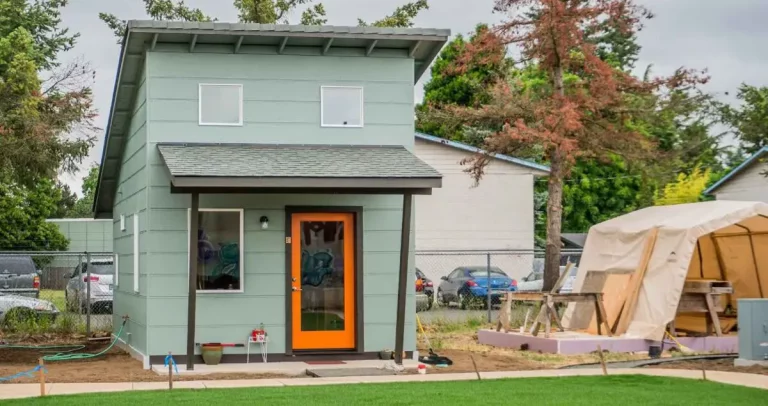The concept of Accessory Dwelling Units (ADUs) has gained significant popularity in recent years, and for good reason. ADUs offer an excellent opportunity for first-time buyers to enter the real estate market, generate rental income, and increase the value of their property. In this comprehensive guide, we will explore the financing options that can help first-time buyers embark on their ADU journey.
Understanding ADUs
Before delving into financing options, it’s essential to understand what ADUs are and why they are attractive to first-time buyers.
What are ADUs?
Accessory Dwelling Units, commonly known as ADUs, are secondary housing units situated on the same property as the main residence. They come in various forms, including attached, detached, or converted spaces.
Benefits of ADUs for First-Time Buyers
- Affordability: ADUs offer a cost-effective way to enter the real estate market. In many cases, they require less upfront investment compared to purchasing a separate property.
- Rental Income Potential: First-time buyers can generate additional income by renting out the ADU. This additional revenue stream can help offset mortgage and maintenance costs.
- Increased Property Value: ADUs can boost the overall value of your property. This can be advantageous when you decide to sell your home in the future.
- Multigenerational Living: ADUs provide space for extended family or guests. It’s an ideal solution for accommodating family members while maintaining privacy.
- Flexibility: ADUs can serve various purposes, such as a home office, studio, or personal space. They can adapt to your changing needs.
Researching ADU Financing Options
The first step in financing your ADU project is thorough research. Let’s begin by looking at the top 10 results from Google to find the best financing options.
Importance of Research
Conducting research is crucial to make informed decisions about financing your ADU project. It helps you identify the financing options that align with your financial goals.
Top 10 Results from Google
- Conduct online searches for ADU financing options.
- Explore websites, articles, and resources from trusted sources. Pay attention to first-hand experiences and case studies.
Factors to Consider in Financing
Consider several factors when evaluating financing options for your ADU project, including:
- Budget: Determine how much you can afford to invest in your ADU, factoring in construction costs, permits, and other associated expenses.
- Credit Score: Your credit score will influence the types of loans and interest rates available to you. A good credit score can open doors to more favorable financing terms.
- Long-Term Goals: Consider your long-term financial goals. Are you looking to build wealth through rental income, or do you plan to sell the property eventually? Your goals will impact your financing decisions.
Traditional Mortgage Loans
Traditional mortgage loans are a common choice for first-time buyers. Let’s explore the options available.
Conventional Mortgages
Conventional mortgages offer competitive interest rates and terms for qualified buyers. These loans typically require a down payment, with options ranging from 3% to 20% or more.
FHA Loans (Federal Housing Administration)
FHA loans are government-backed loans with lower down payment requirements, making them accessible to first-time buyers with limited savings. They require a minimum down payment of 3.5%.
VA Loans (Veterans Affairs)
VA loans are exclusively for eligible veterans and their families, offering attractive terms, including no down payment requirements.
Pros and Cons of Traditional Loans for ADUs
Evaluate the advantages and disadvantages of using traditional mortgage loans for ADU financing. Consider the impact of down payments, interest rates, and the loan approval process on your budget.
ADU-Specific Financing Programs
Some financing programs cater specifically to ADU projects. Let’s examine these options.
HomeStyle Renovation Loan
The HomeStyle Renovation Loan allows buyers to finance the purchase and renovation of their ADU in a single mortgage. It provides flexibility for financing both the property and the construction costs.
FHA 203(k) Rehabilitation Loan
The FHA 203(k) loan covers the cost of purchasing and renovating an ADU in a single loan. This option simplifies financing for buyers looking to upgrade an existing structure.
ADU-Specific Loans or Grants
Explore any ADU-specific loans or grants offered by local government programs or non-profit organizations. These programs may provide financial incentives or low-interest loans to encourage ADU development.
Eligibility Criteria and Application Process
Understand the eligibility requirements and application process for these ADU-specific financing programs. Some programs may have income limits or property location requirements.
Personal Savings and Investments
Consider tapping into your personal savings or investments as a financing option.
Using Personal Savings
Using your own savings can help avoid interest payments and debt. Evaluate your current savings and determine how much you can allocate to your ADU project.
Investing in an ADU
Investing in an ADU can provide a solid return on investment, especially if you plan to generate rental income. Calculate the potential rental income and compare it to your investment costs.
Risks and Benefits of Self-Financing
Evaluate the risks and benefits of self-financing your ADU project. While it can offer financial independence and flexibility, it may also tie up your savings or investments for an extended period.
Home Equity Options
If you already own a home, you may have home equity that can be used to finance your ADU.
Home Equity Line of Credit (HELOC)
A Home Equity Line of Credit (HELOC) allows you to borrow against the equity in your home. This revolving credit line gives you flexibility in accessing funds for your ADU project as needed.
Cash-Out Refinance
Cash-out refinancing involves replacing your current mortgage with a larger one, using the difference for your ADU project. It’s a one-time lump sum disbursement of funds.
Pros and Cons of Using Home Equity
Examine the advantages and disadvantages of utilizing home equity for ADU financing. Home equity options can provide lower interest rates, but they also increase your mortgage debt.
ADU Financing with Family and Friends
Borrowing from family and friends can be an option, but it comes with its own considerations.
Pros and Cons of Borrowing from Family/Friends
Assess the advantages and disadvantages of taking loans from loved ones. While this option may offer more flexible terms and lower interest rates, it can also strain personal relationships if not handled carefully.
Legal and Financial Considerations
Ensure that you have a clear understanding of the legal and financial aspects involved in such arrangements. Consider drafting a formal agreement to protect all parties involved.
ADU Financing Tips for First-Time Buyers
Here are some valuable tips to help you navigate the ADU financing process successfully.
Budgeting and Planning
Create a realistic budget and financial plan for your ADU project. Factor in construction costs, ongoing maintenance, and potential rental income.
Working with a Financial Advisor
Seek advice from a financial advisor to make informed decisions. They can help you assess your financial situation, explore financing options, and develop a customized financial strategy.
Building a Strong Credit Profile
Maintain and improve your credit score to access better financing options. Pay your bills on time, reduce outstanding debt, and monitor your credit report for accuracy.
Evaluating the ROI of ADU Financing Options
Consider the return on investment (ROI) for different financing choices. Calculate the potential rental income, property appreciation, and tax benefits associated with each option.
Case Studies and Success Stories
Real-life examples of first-time buyers who have successfully financed ADUs can provide valuable insights.
Real-Life Examples
Explore case studies of individuals who achieved their ADU goals. Learn from their experiences and discover strategies that worked for them.
Lessons Learned and Best Practices
Discover lessons learned and best practices from successful ADU financing journeys. These insights can help you avoid common pitfalls and make informed decisions.
Conclusion
In conclusion, ADUs offer a unique opportunity for first-time buyers to enter the real estate market while enjoying various benefits. By carefully researching and considering the financing options discussed in this guide, you can turn your ADU dream into reality. Whether you choose traditional mortgage loans, ADU-specific financing programs, personal savings, home equity options, or even assistance from family and friends, the key is to align your financing strategy with your long-term goals.
Ready to take the next step towards financing your ADU and achieving your homeownership dreams? Explore the full article for a detailed guide on ADU financing options. Make an informed decision and embark on your ADU journey today!







